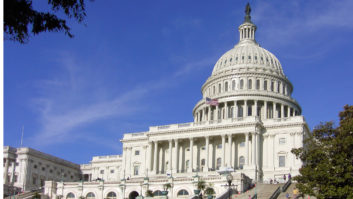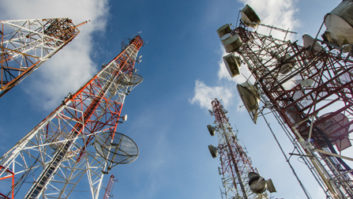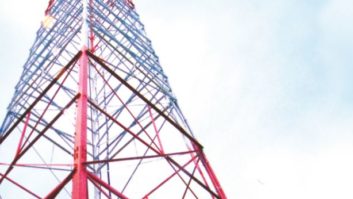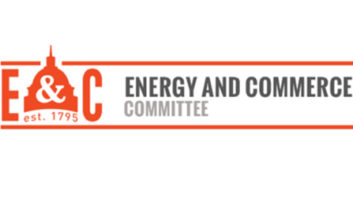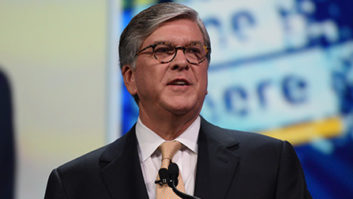The AM Radio for Every Vehicle Act passed out of the House Energy and Commerce Committee on Wednesday following a full committee markup. The proposed legislation — which passed via a 50–1 vote with the addition of an amendment — can now be scheduled for a vote by the full House.
In order to get the AM bill to the House floor as soon as possible, however, it appears a concession was given to automakers during the committee markup. As a reminder, a House committee markup is the process where a congressional committee debates, amends and rewrites a proposed bill before deciding whether to recommend it to the full House of Representatives.
The AM radio bill (H.R. 979) proposes the secretary of transportation mandate that AM radio be made free and easily accessible to consumers in all new vehicles, including electric models. The bill was discussed at the very end of a long and contentious docket on Sept. 17, which included other proposed legislation on rural healthcare and telehealth, as well as changes to the Federal Food, Drug and Cosmetic Act.
Reps. Gus Bilirakis (R-Fla.) and Frank Pallone (D-N.J.) introduced the legislation in the House. The AM bill currently has 300 cosponsors — 151 Republicans and 149 Democrats.
As proposed by Rep. Bilirakis during the Wednesday meeting, the committee approved an amendment shortening the bill’s sunset from 10 to eight years.
“This amendment represents a bipartisan agreement and a compromise across the industry,” said Rep. Bilirakis. “It adjusts the sunset provision from 10 years eight years, shortens the timeline for automakers to comply with the rule and requires DOT to examine the potential impacts to automotive innovation and motor vehicle safety. With these changes, we are future-proofing the legislation and making sure we have the bipartisan consensus product that will truly do what is intended to do: key drivers safe and connected to alert messages during emergencies.”
[Related: “AM Radio for Every Vehicle Act to Receive Minor Technical Update“]
Following Rep. Bilirakis’ initial comments introducing the amendment, Rep. Troy Carter (D-La.) called into question why the bill’s sunset was shortened by two years. Rep. Bilirakis emphasized that compromise and negotiation were necessary to keep the bill moving along.
“I’ve got to move this bill forward,” he said. “You know, eight years is better than than zero. You’ve got to find common ground amongst the members of the legislature and Congress, but also stakeholders. So, to get this on the floor of the House as soon as possible, and pass out of the House, we [must] agree to the eight years.”
Rep. Pallone acknowledged that, while he approved the amendment, he would prefer it not include an eight-year sunset provision.
“The real truth is, there’s currently no replacement as reliable, [where] we’re able to reach as many communities as AM radio,” said Rep. Pallone. “So, I firmly believe that to protect the safety of the American people, we’ll probably need to revisit this act before the sunset expires to ensure that Americans continue to benefit from easy and free access to AM radio.
“But my understanding is that this bill will not move to the floor unless it contains this eight year sunset provision,” he concluded.
The National Association of Broadcasters in a press release on Wednesday note that, of the more than 6,000 bills introduced this Congress, only two bills have more cosponsors: one supporting veterans with disabilities and another commemorating the Miracle on Ice team. The AM radio bill ranks third overall.
“Today’s decisive committee vote sends a clear message: AM radio remains essential to public safety, and every American deserves access to it in their car,” said NAB President and CEO Curtis LeGeyt in the release. “We thank Chairmen Guthrie and Bilirakis, Ranking Member Pallone and members of the committee for overwhelmingly advancing this bipartisan legislation. Policymakers and consumers alike recognize AM radio’s essential role in delivering emergency alerts and reliable information when it matters most. We urge House and Senate leadership to move swiftly to pass this bill and preserve this vital service for the American public.”
The National Religious Broadcasters also voiced its support of the bill’s passage out of the House committee, saying in a press release: “The committee approved revised language that reflects weeks of negotiation — language NRB helped shape directly.”
The NRB said the AM Radio for Every Vehicle Act responds to the auto industry’s growing efforts to remove or diminish radio from dashboards, treating it as non-essential. “Broadcasters, however, emphasize that AM radio remains vital: It is the most resilient and accessible platform for public safety alerts, community information and the free exchange of ideas — including Christian programming,” the religious organization said its release.
Troy A. Miller, NRB president and CEO, said: “The importance of this issue cannot be overstated. Radio continues to serve as the backbone of America’s emergency communications infrastructure and a vital platform for the proclamation of the gospel. NRB is committed to ensuring that broadcasters’ voices remain strong in the car, where millions of Americans still turn for trusted information and encouragement.”
